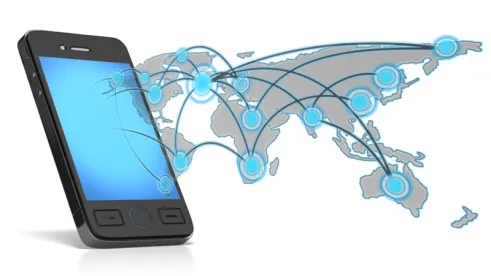Last month the Supreme Court declined to accept an appeal for two related antitrust cases involving an international price-fixing cartel. The cases come from different circuits, one was criminal and the other civil, but they involve the same scheme by a group of Asian manufacturers to rig the prices of liquid-crystal display screens used in computers and cellphones.
 The criminal case resulted in convictions, prison time, guilty pleas, settlements and large fines. The follow-on civil case, brought by Motorola, was dismissed because the court found that US antitrust law did not allow a suit to recover damages from the high prices charged to Motorola's foreign subsidiaries, despite the fact that a large percentage of the phones assembled overseas were subsequently sold in the United States.
The criminal case resulted in convictions, prison time, guilty pleas, settlements and large fines. The follow-on civil case, brought by Motorola, was dismissed because the court found that US antitrust law did not allow a suit to recover damages from the high prices charged to Motorola's foreign subsidiaries, despite the fact that a large percentage of the phones assembled overseas were subsequently sold in the United States.
Under the Foreign Trade Antitrust Improvements Act of 1982, US antitrust law applies to anticompetitive activities outside the US when (1) the foreign conduct has a direct, substantial and reasonably foreseeable effect on US domestic commerce or import trade and (2) the effect gives rise to a claim under the Sherman Act.
The Seventh Circuit's decision, authored by Judge Richard Posner, held that Motorola Mobility, LLC, a US-based technology company, could not recover damages incurred on behalf of its foreign subsidiaries given that they were independent legal entities for tax purposes and the foreign subsidiaries were the direct purchasers of the LCD screens under Illinois Brick. See Motorola Mobility, LLC v. AU Optonics, No. 14-8003 (7th Cir. Nov. 26, 2014).
In addition to lack of standing under the indirect purchaser doctrine, Judge Posner's opinion discussed the jurisdictional reach of US antitrust law:
The Supreme Court has warned that rampant extraterritorial application of US law "creates a serious risk of interference with a foreign nation's ability independently to regulate its own commercial affairs." [quoting from the Empagran case] ...
Motorola’s foreign subsidiaries were injured in foreign commerce—in dealings with other foreign companies—and to give Motorola rights to take the place of its foreign companies and sue on their behalf under U.S. antitrust law would be an unjustified interference with the right of foreign nations to regulate their own economies. The foreign subsidiaries can sue under foreign law—are we to presume the inadequacy of the antitrust laws of our foreign allies? Would such a presumption be consistent with international comity, or more concretely with good relations with allied nations in a world in turmoil? To quote from the Empagran opinion again, “Why should American law supplant, for example, Canada’s or Great Britain’s or Japan’s own determination about how best to protect Canadian or British or Japanese customers from anticompetitive conduct engaged in significant part by Canadian or British or Japanese or other foreign companies?”
After finding that Motorola's private lawsuit for damages had no merit, Judge Posner noted that the Justice Department filed an amicus brief arguing that the Justice Department would have jurisdiction to investigate and criminally prosecute under US antitrust laws conduct that has a direct, substantial and reasonably foreseeable effect on domestic US commerce. A price-fixing scheme involving component parts that were assembled overseas with the resultant product sold into the United States may satisfy this jurisdictional test, even if Motorola itself did not have standing to pursue its damges claim. While the Justice Department may be able to prosecute foreign price-fixing cartels, and indeed did so in the related criminal case, that does not mean the same conduct gives rise to antitrust damages remedy for US-based companies, like Motorola, who were only derivatively injured by the price-fixing cartel.
The bottom line seems to be that the Government can bring some antitrust cases when private plaintiffs cannot, and US companies that chose do to business through foreign subsidiaries cannot "pick and chose from the benefits and burdens of United States corporate citizenship."
The Supreme Court denied to accept the appeals from either the criminal case or the civil case, thus leaving these cases (and the lessons from them) intact. More information can be found in this New York Times article and Wall Street Journal article.




 />i
/>i
